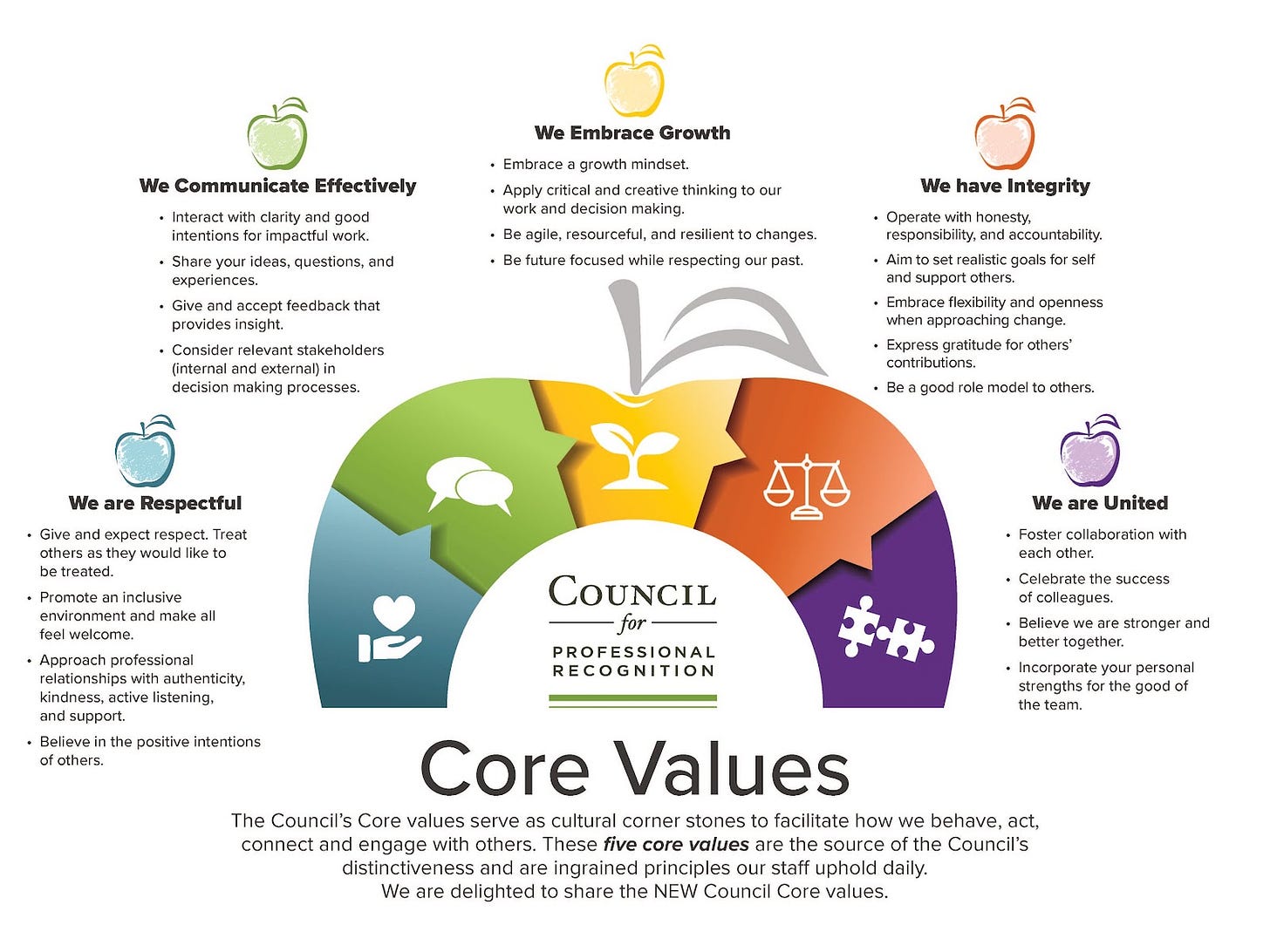We are pleased to celebrate the leadership of Doctor Calvin Moore, CEO of the Council for Professional Recognition, as our Model Leader of the Month. Dr. Moore was selected following a retreat we supported for his organization last month. His visionary, people-oriented leadership style impressed us and we hope you take inspiration from his approach.
To get a sense for Dr. Moore and the Council for Professional Recognition that he leads, listen to this inspiring story.
Dr. Moore’s Leadership Model
Dr. Moore shared a clear vision of his model for leading in three distinct values: service, affiliation, and reflection.
Servant Leadership
“I would say that I’m a servant leader because I want to build community. I want to have empathy. I want to make sure that people feel a sense of connection with me as a leader. I want to make sure people feel [that the CEO is] knowledgeable and wants to be in the trenches with me, or give me the resources I need to be successful.”
Affiliation
“I really want to be seen as a team member and affiliate with the folks who are doing the work. So I'm very curious about the work that's going on at all levels of our organization. And I want people, no matter where they sit in the organization, to see that the CEO is affiliated with what they’re doing.”
Reflective Supervision
“The other thing I would say about how I choose to lead is helping people find the solutions themselves. Whenever I sit with my team, I'm always prone to ask them specific questions: ‘What worked well? What could have happened differently? How did it make you feel? Are there things that we missed? Looking back, why did that mistake happen?’ Digging into all those essential questions helps them come to an understanding of what kinds of continuous improvement or continuous learning needs to happen over time.”
Of course, having a leadership model is one thing, and living it is something else. Listen in as Dr. Moore shares his strengths and challenges in living according to his model.
Dr. Moore’s School of Leadership
Dr. Moore expressed himself through formative story after formative story, often giving praise to those unnamed individuals along his path that “poured into him,” showing time, interest, and investment in his professional development. He identified key moments in his life that empowered and developed him as a leader. Specifically, he names two key individuals and one key text that served as his “schooling” as a leader.
His father’s ability to listen and give full opportunities to express himself left a strong impression with Moore, where he now uses listening as a tool for empowerment. His first CEO’s risk-orientation combined with her desire for Moore to shine, helped him develop rapidly and set a foundation for his leadership style today. The book Jesus CEO by Laurie Beth Jones also inspired him as it showed how Jesus developed a ragtag group of people into an effective leadership team. This helped Moore look for potential and bring it out in unexpected places.
On Building Teams
Dr. Moore has some practical advice for building teams.
“Teams need to know a lot about themselves.” Take a page from Dr. Moore’s notebook and bring an external facilitator to run a retreat, using personality assessment tools for team members to better understand one another’s backgrounds, strengths, motivations and goals.
“Whatever you need to be successful, I want to provide it.” Dr. Moore provides resources in the form of tools, skills and professional development.
“I believe leaders need autonomy and are trusted as subject matter experts.” Dr. Moore gets close to his teammates, not to hover but to show that he’s curious about the work they are doing.
How does he describe his main job as a leader? To keep his executive team inspired and energized. Check out the below story and image for an example of how he does this!
On Building Culture
Dr. Moore’s approach to building culture starts with values. As part of a strategic planning effort, an entire task force was dedicated to defining the values of the organization, complete with definitions and behaviors. These values guide their hiring, performance, and recognition. We saw this in action at the organization retreat, where team members were recognized with awards for specific ways in which they demonstrated the organizational values. More of this from leaders, please!
Thank you, Dr. Moore, for your marquee example of servant leadership, team affiliation, and reflective learning. Your insistence on uplifting and empowering your team members is inspiring and motivating. We wish you and your team continued success and are grateful for your wisdom!
With gratitude,
Andrew and Ariel








